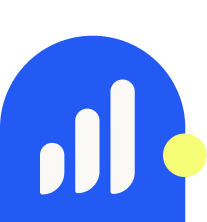
No matter what industry you are in there are always buzzwords that everyone should know. If you are new to the elearning space, then you will be doing yourself a favor by knowing what these terms mean (because you will hear them a lot).
Now the elearning jargon you are most exposed to often depends on the type of niche that you specialize in. For example, you can probably expect a greater number of technical key terms if you are working more with learning management systems. Just the same, someone who is constantly giving live-training sessions will also have their own set of commonly used words.
Below is a list of some of the most common elearning words (some of which originally provided by SHIFT ELearning) that you will hear at least once during your workweek:
[divider]
Authoring Tool – ELearning and training software that assists in creating online courses, or the final elearning material for a learner’s use. Some examples include Articulate Storyline, Articulate Studio, Adobe Captivate, and iSpring Presenter.
Blended Learning – This is the strategy of combining both face-to-face learning with online training. It is common in today’s university an K-12 settings.
Instructional Design – A systematic practice of designing, developing, delivering, and measuring learning material in either a traditional face-to-face format or virtually via computers or mobile devices.
Storyboard – The course outline that is created prior to developing course materials. Storyboards cover topics such as objectives, course content, target audience, and duration.
Learning Management Systems (LMS) – A combination of tools and software that allows for the planning, scheduling, and delivering of online training courses. The system often has mechanisms in place to measure learning and progress.
SCORM – The acronym for Sharable Content Object Reference Model, SCORM is the old model for packaging elearning modules so that they can be launched (and tracked) from an LMS.
Tin Can (Experience) API – The latest elearning protocol that extends upon SCORM so that learning events are not constrained to browsers, but allows for platform flexibility and maximum tracking/measurement.
Learning Record Store – The place where Tin Can statements are sent. An LRS can reside within a traditional LMS, or as a separate entity. With the statements in one place, further reports and metrics can be obtained.
MOOC – Short for Massive Open Online Course, MOOC classes are often focused on an academic discipline (but not always). Popular MOOC programs include edX and Coursera.
Flipped Learning – The practice of delivering all course content online and using classroom time for activities that apply the learning content.

Justin Ferriman
@LearnDashLMS






